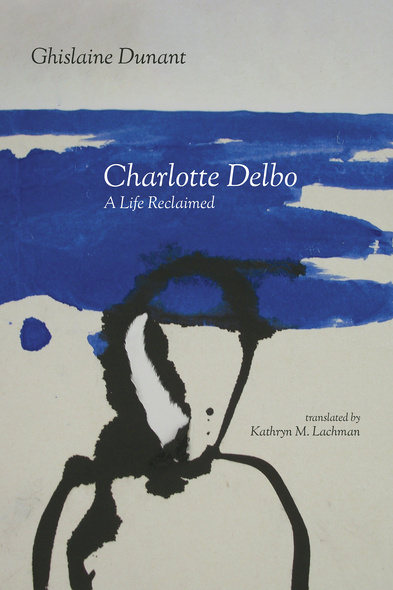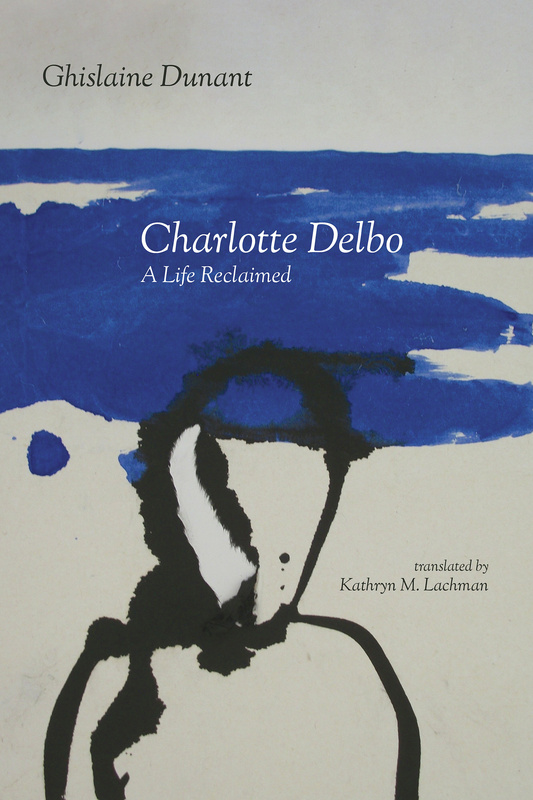Charlotte Delbo
A Life Reclaimed
By Ghislaine Dunant; Translated by Kathryn M. Lachman
University of Massachusetts Press
In 1943, Charlotte Delbo and 229 other women were deported to a station with no name, which they later learned was Auschwitz. Arrested for resisting the Nazi occupation of Paris, Delbo was sent to the camps, enduring both Auschwitz and Ravensbrück for twenty-seven months. There, she, her fellow deportees, and millions of others were subjected to slave labor and nearly succumbed to typhus, dysentery, and hunger. She sustained herself by reciting Molière and resolved to someday write a book about herself and her fellow deportees, a stunning work called None of Us Will Return. After the camps, Delbo devoted her life to the art of writing and the duty of witnessing, fiercely advocating for the power of the arts to testify against despotism and tyranny.
Ghislaine Dunant's unforgettable biography of Delbo, La vie retrouvée (2016), captivated French readers and was awarded the Prix Femina. Now translated into English for the first time, Charlotte Delbo: A Life Reclaimed depicts Delbo's lifelong battles as a working-class woman, as a survivor, as a leftist who broke from the Communist Party, and most of all, as a writer whose words compelled others to see.
Ghislaine Dunant's unforgettable biography of Delbo, La vie retrouvée (2016), captivated French readers and was awarded the Prix Femina. Now translated into English for the first time, Charlotte Delbo: A Life Reclaimed depicts Delbo's lifelong battles as a working-class woman, as a survivor, as a leftist who broke from the Communist Party, and most of all, as a writer whose words compelled others to see.
'Dunant brings French Holocaust survivor and writer Charlotte Delbo to life in this moving biography . . . With a sharp eye, Dunant offers a perceptive look at a lesser-known literary figure.'—Publishers Weekly
'[R]ichly detailed, absorbing, and thoroughly researched . . . this translation is valuable for bringing Delbo to a new audience, and permitting Dunant’s extensive archival research and insightful perspectives on Delbo’s life and work to inform and engage readers.’—French Studies
'This splendid biography brings to life a woman of uncommon courage and intellect who needs to be better known and understood in America, in a fine translation by Kathryn Lachman. Detailed and fully documented, A Life Reclaimed is a gripping narrative told with empathy and deep understanding of the issues and traumas faced by so many in the unhappy history of France in the twentieth century.'—David Bellos, author of Georges Perec: A Life in Words
'Five years after its 2016 publication in French, Ghislaine Dunant's award-winning biography of Auschwitz and Ravensbrück survivor and writer Charlotte Delbo has found its voice in English in this lyrical, even musical translation by Kathryn Lachman. Delbo's life and work have long been regarded as essential reading for all students of the Holocaust era, and now this staggeringly beautiful translation of Dunant's brilliant biography is no less essential, a must-read for all who ask how art and literature shape and have been shaped by the concentration camp universe.'—James Young, author of The Stages of Memory: Reflections on Memorial Art, Loss, and the Spaces Between
'Charlotte Delbo is one of the most important testimonial writers of the Holocaust, alongside Primo Levi. She is also one of the rare witnesses to have focused on the lives of women in Nazi concentration camps. As the first biography of Delbo to appear in English, A Life Reclaimed is likely to become a reference for anyone seeking context for Delbo's work. The translation is excellent.'—David Caron, author of The Nearness of Others: Searching for Tact and Contact in the Age of HIV
'The force and focus of Dunant's biography is its evocation of the lived experience of its subject. Given the extremity, indeed horror, of the central episode of that life, no one should, would, or could suggest that Dunant's biography allows its readers to share Delbo's point of view. What it does do, however, is bring us closer to that perspective, and make unmistakable its importance, not just for understanding (if such a thing is possible) one of the most unspeakable episodes of human history, but for responding to the political exigencies of our own times.'—Jim Hicks, executive editor of the Massachusetts Review
GHISLAINE DUNANT is the author of five books, among them Brazen and Un effondrement, winner of the Michel Dentan Prize. KATHRYN M. LACHMAN is associate professor of comparative literature at the University of Massachusetts Amherst.





